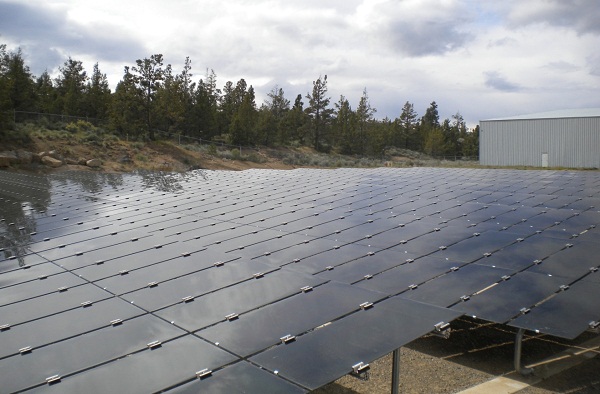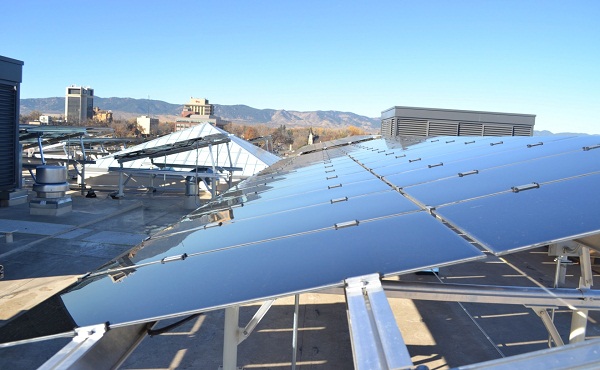Abound Solar this week became the second government-backed solar power manufacturer, after Solyndra, to go belly up – but this one won’t cost the taxpayers nearly as much money.
Solyndra got a half-billion-dollar loan guarantee before failing and left the U.S. Department of Energy virtually nothing to recover. But Abound, a Colorado-based thin-film company, had used just $70 million of a $400 million guaranteed loan when the DOE halted disbursements, fearing for the company’s future after the Solyndra debacle.

“Because of the strong protections we put in place for taxpayers, the Department has already protected more than 80 percent of the original loan amount,” the DOE’s chief spokesman, Damien LaVera, said in a post on the department’s blog. “Once the bankruptcy liquidation is complete, the Department expects the total loss to the taxpayer to be between 10 and 15 percent of the original loan amount.”
That’s still real money, of course, and Abound’s collapse gives Obama administration critics a little more ammunition in their attacks on the president’s clean energy policy.
“Abound is just the latest reminder that President Obama’s stimulus has failed,” House Energy and Commerce Committee Chairman Fred Upton (R-Mich.) and Subcommittee on Oversight and Investigations Subcommittee Chairman Cliff Stearns (R-Fla.) said in a statement. First Solyndra, then Beacon Power, Ener1, and now Abound – the bankruptcies are piling up, confirming the prophecy of President Obama who warned in his State of the Union address that ‘some companies fail.’ But the question remains — why invest in risky bets like Solyndra in the first place, especially when administration experts are warning that they are doomed for failure?”
Beacon Power, an energy storage company, went into bankruptcy last October, but the DOE appears on the way to recovering most of the $39 million in guaranteed loans the company actually took out – its assets were purchased for $30 million by Rockland Capital. Lithium-ion battery specialist Ener1, which took around $55 million in U.S. loans, is operating in bankruptcy.
Abound’s collapse comes as the solar manufacturing industry – in the United States and throughout the world – continues to lurch through a brutal reordering. One day after Abound announced it was closing, German company Schott Solar said it was closing a New Mexico plant and would stop producing crystalline silicon photovoltaic products at its main Germany plant this fall.
Abound’s loan-guarantee bounty — plus the $300 million in private investment it received — was intended to go toward building the world’s largest thin-film manufacturing plant in Tipton, Ind., allowing the company to compete with thin-film leader First Solar. When it received its loan guarantee Abound said development of the site was expected to begin in 2012.

But along the way, China happened.
“Abound believes that, at scale, its USA-made CdTe panel technology has the ability to achieve lower cost per watt than competing crystalline silicon technology made in China,” the company said. “However, aggressive pricing actions from Chinese solar panel companies have made it very difficult for an early stage startup company like Abound to scale in current market conditions. According to the U.S. Commerce Department, the U.S. solar market has seen the prices for panels drop by more than 50 percent in the past year at a time when the value of imports of Chinese-made solar cells nearly quadrupled from $639 million in 2009 to $3.1 billion in 2011. Abound supports recent initiatives to enforce fair trade with import tariffs, but this action is unfortunately too late for the company.”